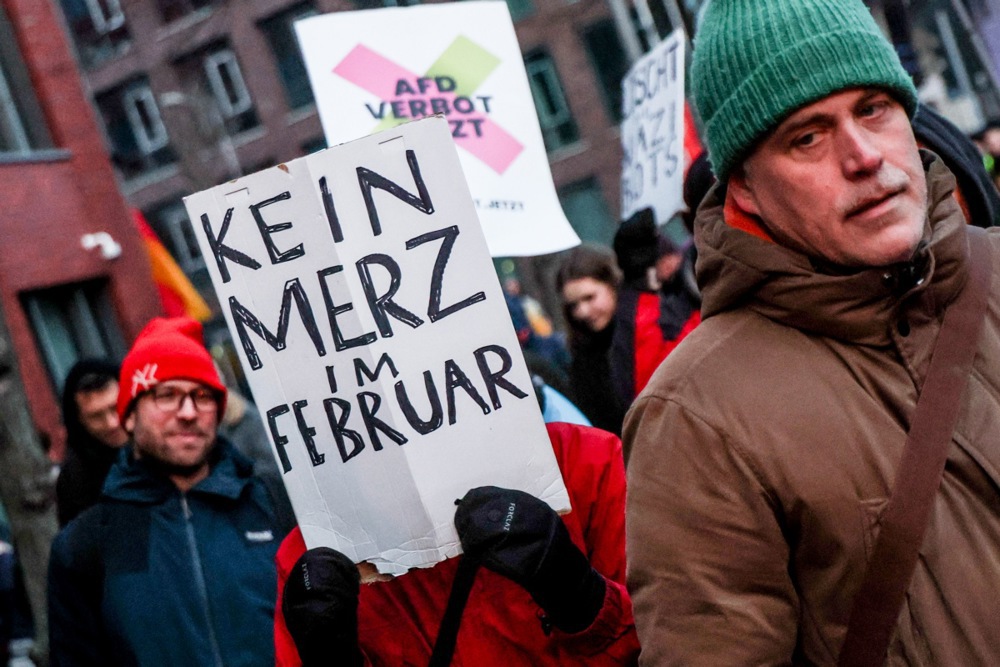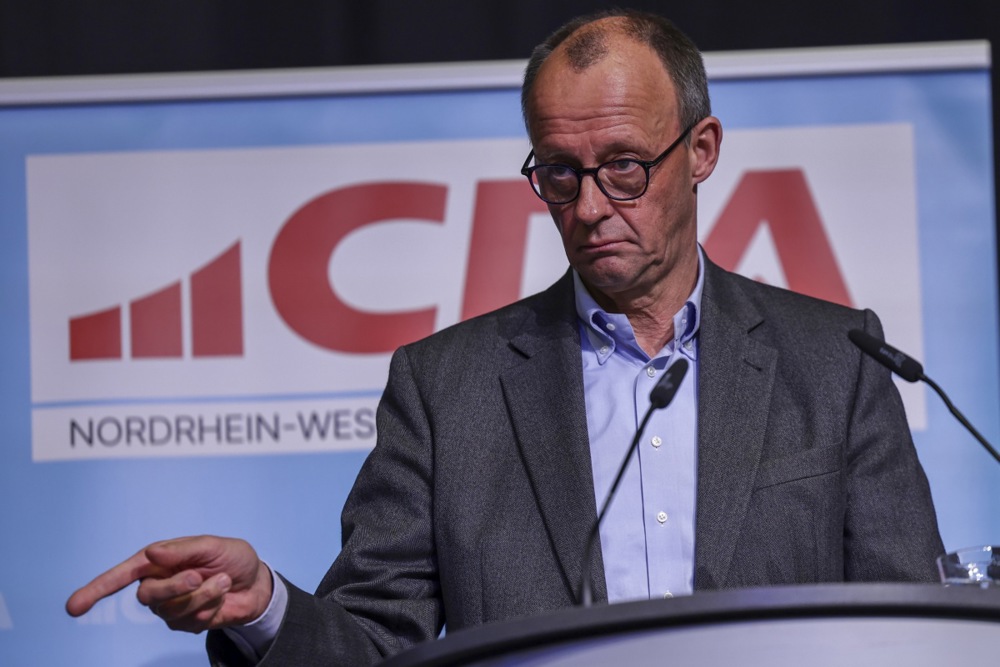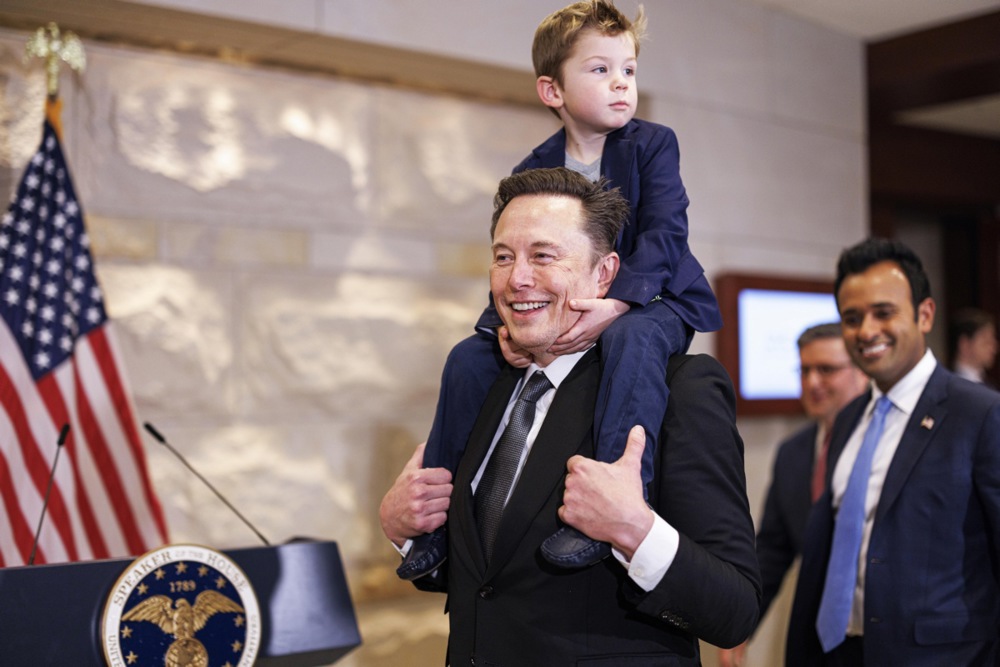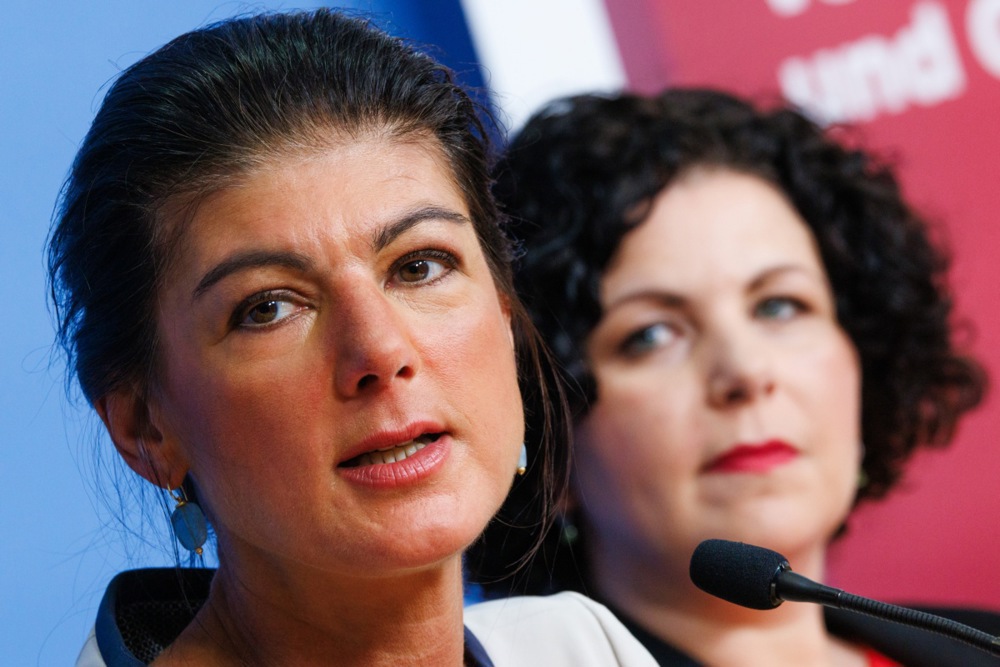Germany’s election results have delivered a crushing blow to the progressive “traffic light” government.
The centre-right Christian Democratic Union/Christian Social Union bloc (CDU/CSU) ended up with 28.6 per cent of the vote, an increase of 4.4 per cent points, making it the largest party in the country. The CSU operates only in Bavaria while the CDU works in the other 15 states of Germany.
In the February 23 elections, the hard-right Alternative for Germany (AfD) became the second-biggest party and obtained a blocking minority in the parliament. That means other parties could not push through constitutional amendments without its support. The AfD, which doubled its pervious showing to 20.8 per cent of the vote, has become the biggest party in all the former East German states but is set to be excluded from joining any new federal coalition.
A right-wing coalition between both the CDU and AfD could have been possible, since the CDU won 208 seats and the AfD 152, comfortably passing the 316 threshold in the 630-seat Bundestag.
The CDU, though, ruled out forming a coalition with the AfD before and after the elections, maintaining the so-called “firewall”.
This doctrine bars co-operation with parties deemed far-right — a stance notably not extended to far-left groups — maintaining a firm boundary in Germany’s political arena.
Because of this, Friederich Merz, the leader of the CDU and expected future German chancellor, has opted to seek a government with the Social Democratic Party (SPD), as together they hold 328 seats.
On the evening of February 23, Merz announced that he would form a government by Easter at the latest.
„Wir brauchen eine zügige und vernünftige Regierungsbildung. Wir müssen international handlungsfähig werden. Ich bleibe bei meiner persönlichen Hoffnung, dass wir bis Ostern eine Regierung gebildet haben. Europa wartet auf Deutschland.” ™ pic.twitter.com/nMJ4fwcRYi
— Friedrich Merz (@_FriedrichMerz) February 23, 2025
The SPD was the biggest loser of the election, seeing a drop of 9.3 per cent to 16.4 per cent, its worst result in more than a century.
Outgoing SDP Chancellor Olaf Scholz announced he would not be available for coalition negotiations and rejected a possible ministerial office in advance, taking responsibility for the poor showing.
The SPD’s fall was shared with the other parties from the now-former traffic-light coalition, which had been deeply unpopular.
The Greens lost 3.1 per cent, ending up with 11.6 per cent of the vote, while the Liberal FDP party shed 7.1 per cent, leaving it on 4.3 per cent. That was under the 5 per cent threshold to be represented in the German parliament.
FDP President Christian Lindner announced his resignation from politics and party member and MEP Marie-Agnes Strack-Zimmermann said she wanted to be his successor.
The Sahra Wagenknecht Alliance (BSW) met a similar fate, scoring 4.97 per cent, 13,000 votes short of the 5 per cent hurdle.
With 28 per cent of the vote, the CDU/CSU has won approximately 33 per cent of the Bundestag seats. The SPD, despite garnering just 16.4 percent of the vote, has about 19 per cent.
Die Linke, the successor of the Communist party that ruled over East Germany during the Cold War, captured voters from the Greens and SDP and won 3.9 per cent more votes, scoring 8.8 per cent in total.
Voter turnout was 83.5 per cent, the highest since unification in 1990.
With the Greens mathematically not needed to form a majority, some said they hoped Germany would now make changes regarding migration, energy and industry. A number of Greens MPs had vented their frustration at European Union migration reform policies.
Yet, despite being the biggest party, the CDU still had its second-worst result in history, surpassed only by the 24.1 per cent it managed in 2021 after Angela Merkel’s 16-year chancellorship.





